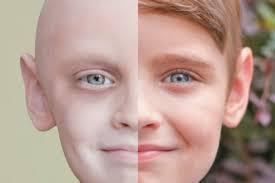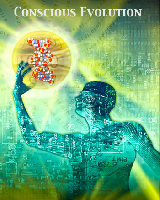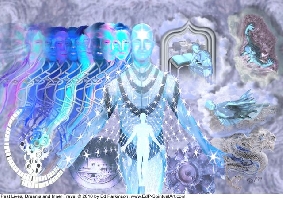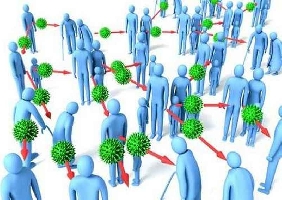Have you ever been in a situation, when you having passed by a beggar received all sorts of curses from him? Or you decided to give alms, and did it, but then, instead of gratitude, suddenly heard cursing and insults as in the first case?
This article does not have an aim to give an unambiguous answer to the question: "Should we give alms?" It is merely a result of personal reflection on possible solutions. Nevertheless, these considerations may help someone to look at this ordinary situation from a different perspective. Maybe some people, who often get into a situation, when they need to make a choice "to give or not to give alms" just have never thought of the ideas, described below.
On one of the Internet forums there was a question: "Should I give alms to beggars, homeless people and old women? I heard that we should not interfere with the education of these people by the Universe. Others say that when you give alms, God also gives you back. "
In my opinion, every situation is unique, so it is not possible to get a comprehensive solution on this issue. You must admit, even three categories of people mentioned in the question - "beggars", "homeless people", "old women" probably differ from each other. And every person of the particular category, mentioned above, is unique. But the most important is the unique chain of life events that has led the them to these circumstances. Therefore, in such cases they usually say, "Listen to your heart ...". Let's think together about what this phrase means in relation to a particular situation.
It is clear that to determine how to act in a particular life situation, including the decision whether to give alms or not, each of us can do only individually. But in any case, the decision depends on the accumulated individual experience, or in other words - on the amount, and most importantly, on the quality of the information we use. This experience (information), acquired to moment when you need to make a decision, immediately generates our current life principles, and according to these principles, we formulate our inner personal SUBJECTIVE MOTIVATION to make the right decision at the current moment of our lives. So, let's try to define current principles, which YOU PERSONALLY are guided by, when you make a decision to give or not to give alms, and then you will define the right answer for yourself. In the end of this article, I will provide the motivation, which I currently use. I will also tell how principles on which this motivation is built, can influence the a person's thoughts during a decision making process in similar circumstances.
So, for the convenience of further explanation, I conditionally split possible, in this situation, motivations into two primary groups:
1.Yes, you want to help, but you want to get something "for yourself" after the donation;
2. You don’t seem to wish something in return , you just want to help, but do not understand why you should.
The first group of motivations:
I want to give alms because:
• I have the life experience: "when you give alms, the God also gives you back (as written in the question).
• I do not have such experience, but I want to experiment to determine whether this is actually so. I will try until finally make sure that "God always gives back ...", or will loose faith in it and then start to look for other motivations.
• I believe that such monetary contribution may "pay back karma debts" for my own previous shortcomings. I feel that a lot of my past actions were wrong, and due to fear of "God's punishment" I wish to provide an indulgence for an "unjust" life.
• I'm afraid that if I do not give money to this person, I, possibly can face a retaliating humiliation, such as an insult, shout, or a curse..
• I dislike the appearance of the beggar, the situation itself delivers serious inconvenience, and I want to get away from it, to get rid of the depressing view.
• By sacrificing alms I want to earn the respect of others, to show them that I'm selfless and generous.
• I want to look unselfish, generous and nice to myself.
• As it turned out, I found myself in these circumstances, and the beggar asks me in particular, it is obvious that this is my personal life lesson. If I do not give now, the life lesson will "not be passed" and it will entail unfavorable circumstances in the future.
I do not want to give alms because:
• I am in a hurry now. There is not even time to find small change in the pocket. I am sure I will give alms when I am not so busy.
• It is very difficult for me to get money, I work hard to feed my family and children. I just cannot help now. When I am not short of money, I will definitely help.
• I would help, but it is wrong, that a person I see gets the money without making any effort, while other people have to earn money "through hustling and bustling".
• I believe that a man is guilty of circumstances he is in right now. I heard the opinion that "we should not interfere in the education of these people by the Universe". Although I personally do not yet have my own clear idea what this means, however I think that I have every right to be a "guide" of the will of the Universe (God, fate, karma, cosmic laws and so on).
The second group of motivations.
I want to give to charity because:
• I do not want anything for myself in this situation. I feel like my "soul" calls to help homeless, poor and indigent people. I have an inexplicable impulse to contribute money to this person. What is there to to think about? Is it possible to act differently?
• I believe that in this situation it is necessary to help indigent and suffering people, because it is normal in the human society for thousands of years. This morality had been inculcated in me from childhood.
• I believe that in such situations it is necessary to help, because it is proclaimed by the Church, or religion, which I practice.
• I just feel sorry for this individual. But "from pity to love is a single step!"
• I'm not afraid of an return insult in case i do not provide charity, however, I do not want other people (for example, my family or close friends) to suffer from such possible retaliative actions.
I do not want to donate because:
I think I can help this person just by not interfering with his education by the Universe." As the man himself appeared in these circumstances, probably there are certain reasons why Life (God, Fate, Karma, cosmic laws, the Super Mind) put him in such conditions? I already have enough knowledge and insight to "see" in this decayed, homeless, bothersome, screamy beggar, poor, “miserable" old lady a kind of projection of highly developed Cosmic Entity, longing to cognize itself and thus, modeling such circumstances for itself.
Of course, these are not all motivations which can be considered. So I have a huge request to all who are reading this article: "If you can offer other additional possible motivations in this situation, please do it in any convenient way (in the comments, by mail ...) and we will analyze them together!". If above motivations somehow induced you to think about consequences for you and others, to which each your choice can lead, then maybe now you will need to answer the following questions, arising automatically: "How do you interpret the term Assistance according to your current understanding of life, mercy, compassion, love, justice, goodness, morality ...? ".
And I would go on to reflections that may arise, if I face the choice of giving or not giving alms, and what actions should be taken to determine my unambiguous decision in a particular situation. What kind of motivation will satisfy me personally? How do I interpret the advice "listen to your heart" when making a decision?
In my reflections, I base on my personal experience at the moment and subjective interpretation of the information given by IISSIIDIOLOGY on such issues.
In generally accepted sense - the heart – is a symbol of love, high sensibility and intuition that allows to take the most correct decision for us. Unfortunately, a lot of people often contrast intuition and logic and separate solutions adopted by "heart" and "mind". However, in my opinion, intuition cannot be based only on bare "sensuality" and exist without certain knowledge, that is, without a reasonable approach and "mental" justification of the decision in any choice. These things are simply inseparable! So I do not quite agree with those who believe that the "logical thinking - is going away from the heart."
Here , of course, I am not talking about the "games" of the selfish mind, which is actually able to distort reality beyond recognition in its own interests. I'm talking about intelligence, aimed at helping others, which contribute to the manifestation of all the best in a man, about intelligence, implemented on the benefit of the most living beings, about intelligence, which is inextricably linked with Altruism! Consequently, making any life decisions, I have to try to make my choice on the basis of these two principles - Intelligence and Altruism. Moreover, the main secret is that both of these qualities should certainly be present in the mind at the moment of decision.
Such psycho-mental conditions are described in detail in IISSIIDIOLOGY and are treated as the most "human" today. The presence of both qualities in a situation when you need to decide on how to help a particular person, also implies responsibility for others, and thus feeling, when and how to help. Of course, you can always take a part of someone's obligations on yourself, thus as if relieving someone's life. Actually, you cannot relieve, but rather aggravate internal mental processes and complicate circumstances in which a person will occur later on. When making decisions in such "disputable" situations you need wisdom, based on a combination of intelligence, altruism and responsibility.
In the context of our situation of alms, is there wisdom in the previous motivations? If you look closely at the proposed list, you'll see why I conditionally divided motivations into two groups . In the first group, at first glance, there is intellect, but they evidently reflect different degrees of selfishness. The second group of motivations seems to be more altruistic, but there is a complete or partial lack of intellect.
On the example of the discussed situations, I offer my subjective reflections, in which I try to take into account the simultaneous presence of intellect and altruism, as well as responsibility in the situation whether to give or not to give alms.
If I faced this situation, then it definitely happened for a variety of reasons - the fact, which I should certainly need to think about. But I will think about it, and analyze it later. Now I need to make a quick decision. I understand that the person who asks me, has found himself in such circumstances of life not by coincidence. But now for me it's not critical, I am not ready to adopt the role of "a tutor", sent to this man by the Universe, because I think this attitude is arrogant. The important thing is what I personally feel about this man and the situation. I must help! But how do I help? State of Intellect and Altruism automatically assumes responsibility for this man, as well as for other people.
Can I call it help, if I give money to a drunkard vagrant, he will buy vodka with them, and nothing in his life will change? I will be responsible not only for the fact that he will continue his own degradation and will possibly commit suicide, but also for the fact that once in alcoholic delirium he will injure others (strike, kill, rape)?
The same thing is with professional beggars. Having received money, he will become confident that it is as it should be, that this is the way he can always exist. So I indulge his arrant selfishness and dependency. Due to my "help" he is absolutely sure that people should always help him. Once only because someone does not think so and will not give him alms, he will harm others (offend, strike, rape, kill) .
And what to do with this unfortunate solitary elderly woman, completely forgotten by her children and by the state, finishing her last piece of bread near the church ? Shouldn’t I help her? And maybe I'm wrong? Maybe this vagrant is not the worst homeless drunkard, but he might be a Ph.D., author of many inventions, envied by his opponents and dismissed from his job, who became a victim of frauds, that deceived him and left without home? And this man is not a professional beggar, but a poor artist, who came from another city and who has had all his documents and money stolen, so he cannot go home? And this elderly woman is not such "an old doddler" as she seems to be at first glance, maybe she is “a gone coon”, who did terrible things in the past, and who cannot still understand something very important in her life?
What is to be done? I really want to help the man, whom I met on my way, but how to do it without special extrasensory abilities that allow to determine rapidly and accurately all cause-and-effect relationships that led this particular person into such life circumstances? At first glance – it is a dead end and it’s impossible to choose the "most human" solution in this situation. However, you can minimize the danger of the "wrong" choice in the situation by a quite simple action.
If I really want to help, I must set aside other things and talk to this man, and only then make a final decision! During communication there may arise a huge number of variants of my help except money, or I will confidently contribute that amount of money, which I consider reasonable. But, possibly, I will clarify some circumstances, by which my "help" will become “a disservice ”not only to this person, but will also cause irreparable harm to other people. I am sure that anyone who doesn’t not have extrasensory abilities, if he really has compassion and wants to help a man in need, will be able to distinguish truth from falsehood during a conversation , and therefore make a much more reasonable decision whether to donate or not.
In the process of writing, I remembered and analyzed similar situations and people, whom I had met in such situations throughout my life before I knew about IISSIIDIOLOGY. At that time I did not think about presence of Intellect and Altruism in my choices. In almost all cases I gave alms (sometimes with doubts, sometimes without them). I must say, I have come to the conclusion that in most cases it was a mistake. Of course, only from the viewpoint of my current understanding of specific situations that I personally experienced.
I do not want to say that I do not advise to give alms at all, - that would be foolish. Such position can lead to cruelty, callousness and inhumanity. I only suggest to think, if our so-called “help” is a real help and does not harm others. I understand that after reading this post some uncertainty may still remain , because everything is so ambiguous. So if someone has a need to talk on this subject to get more detailed explanation, please comment, ask questions, describe situations. Let us investigate this complex issue together!
by Kraullarrd
translated by Triallokr

















